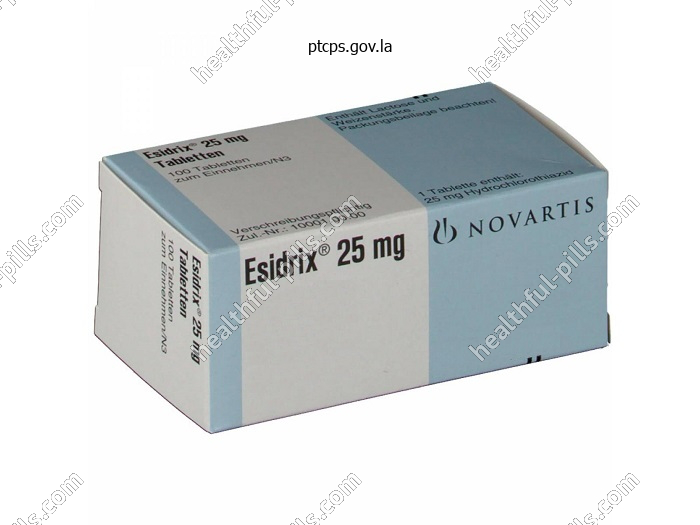
General Information about Esidrix
Esidrix, also known as hydrochlorothiazide, is a medication commonly prescribed to help prevent the body from absorbing too much salt. Salt, also known as sodium chloride, is a mineral that is essential for the body to function properly. However, too much salt intake can lead to fluid retention, which can cause a multitude of health issues.
One of the primary uses of Esidrix is for the treatment of high blood pressure, also known as hypertension. High blood pressure occurs when the force of blood against the artery walls is consistently too high. This can be harmful to the body as it puts extra strain on the heart, arteries, and other organs. If left untreated, high blood pressure can lead to serious health complications, such as heart disease, stroke, and kidney failure.
Esidrix works by increasing the removal of excess salt and water from the body through the urine. This decrease in fluid retention helps to reduce the volume of blood in the body, resulting in a lower blood pressure. By regulating the body's salt and water levels, Esidrix helps to keep blood pressure at a healthy level.
Esidrix is a diuretic, a type of medication that increases the production of urine. This means that it can also be used to treat other conditions such as edema (swelling) caused by congestive heart failure, liver disease, or kidney disorders. It is also sometimes prescribed for patients with diabetes insipidus, a condition where the body produces large amounts of urine, causing dehydration and electrolyte imbalances.
Aside from its use in managing high blood pressure, Esidrix is also known to improve overall cardiovascular health. By regulating blood pressure, it helps to prevent damage to the arteries, which can be a precursor to heart disease. It also aids in the prevention of stroke by reducing the risk factors associated with it, such as high blood pressure.
Esidrix is generally safe and well-tolerated, with few side effects. The most common side effect is increased urination, which may lead to dehydration if not properly managed. Other side effects may include dizziness, headache, and stomach upset. It is essential to follow your doctor's instructions on dosage and monitor your fluid intake while taking Esidrix to prevent dehydration.
As with any medication, there are certain precautions to be aware of when taking Esidrix. It should be used with caution in patients with kidney disease or diabetes, as it may worsen these conditions. It should also be avoided by those who are allergic to sulfonamide medications or have an allergy to thiazide diuretics.
In conclusion, Esidrix is a valuable medication in the management of high blood pressure and other conditions related to fluid retention. By regulating the body's salt and water levels, it helps to maintain a healthy blood pressure, thus preventing serious health issues. However, it is crucial to consult with a healthcare professional before starting any new medication and to follow their instructions carefully to ensure its safe and effective use.
Esidrix Dosage and Price
Esidrix 25 mg
- 360 pills - $139.99
- 270 pills - $118.95
- 180 pills - $82.96
- 120 pills - $58.93
- 90 pills - $47.05
- 60 pills - $35.33
Esidrix 12.5 mg
- 360 pills - $99.99
- 270 pills - $81.99
- 180 pills - $58.99
- 90 pills - $36.55
